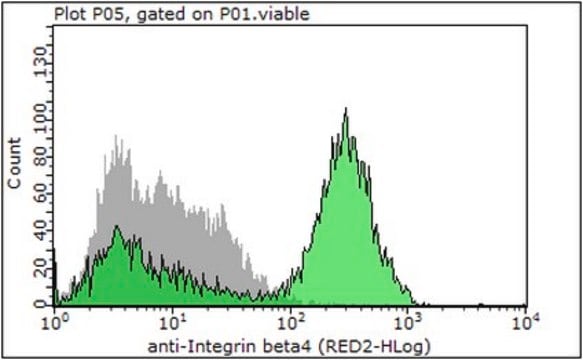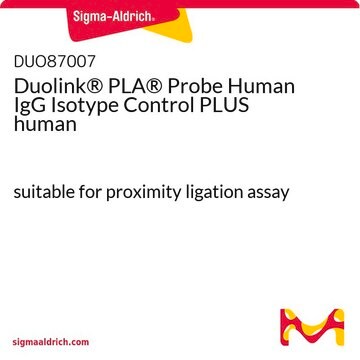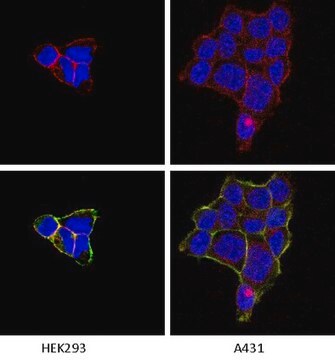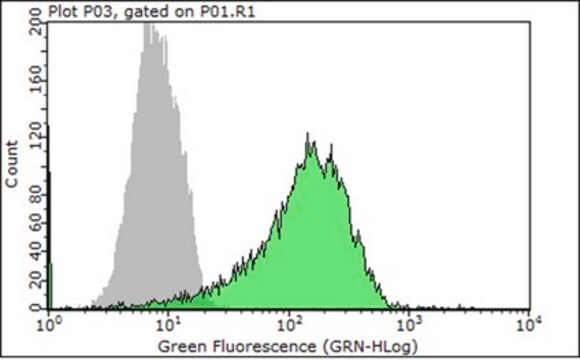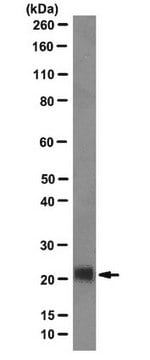MAB2059
Anti-Integrin β4 Antibody, clone ASC-8
clone ASC-8, Chemicon®, from mouse
Synonym(s):
CD104, MAB2059Z
About This Item
Recommended Products
biological source
mouse
Quality Level
antibody form
purified immunoglobulin
antibody product type
primary antibodies
clone
ASC-8, monoclonal
species reactivity
human
manufacturer/tradename
Chemicon®
technique(s)
flow cytometry: suitable
immunohistochemistry: suitable
immunoprecipitation (IP): suitable
isotype
IgG1κ
NCBI accession no.
UniProt accession no.
shipped in
wet ice
target post-translational modification
unmodified
Gene Information
human ... ITGB4(3691)
Related Categories
Specificity
Immunogen
Application
Immunohistochemistry: A representative lot of this antibody clone was used in immunohistochemistry (acetone-fixed frozen human epithelial tissues including tongue, foreskin and ovary. Not for use on formalin-fixed tissue).
Flow Cytometry: A representative lot of this antibody clone stained human squamous cell carcinoma (SCC9), ovarian carcinoma (SKOV-3) and umbilical vein endothelium (HUVEC). Stains RKO or K562 cells transfected for CD104 expression. Does not stain monocytes, neutrophils, lymphocytes, T cells, B cells or platelets.
Functional Activity Assay: A representative lot of this antibody clone induced a sub-basal split at the basement membrane in non-wounded tissue. In addition, wound closure was significantly inhibited by ASC-8, as the epithelial tongue only covered 40 percent of the wound area at 120 hours post-wounding. These results demonstrate that the β4 adhesion-blocking antibody may have adverse effects on normal tissue (Egles, C., et al., 2010).
Working dilutions must be determined by end user.
Cell Structure
Integrins
Quality
0.5 µg of the antibody was used to detect Integrin β4 in 1x10^6 A431 cells.
0.5 µg of the antibody was used to detect Integrin β4 in 1x10^6 HeLa cells.
Linkage
Physical form
Storage and Stability
Other Notes
Legal Information
Disclaimer
Not finding the right product?
Try our Product Selector Tool.
Storage Class Code
10 - Combustible liquids
WGK
WGK 2
Flash Point(F)
Not applicable
Flash Point(C)
Not applicable
Certificates of Analysis (COA)
Search for Certificates of Analysis (COA) by entering the products Lot/Batch Number. Lot and Batch Numbers can be found on a product’s label following the words ‘Lot’ or ‘Batch’.
Already Own This Product?
Find documentation for the products that you have recently purchased in the Document Library.
Our team of scientists has experience in all areas of research including Life Science, Material Science, Chemical Synthesis, Chromatography, Analytical and many others.
Contact Technical Service
